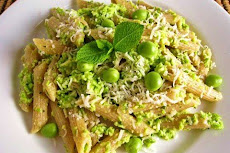 Restaurants encounter a rash of decor thievery
Restaurants encounter a rash of decor thievery By David Kaplan,
Houston ChronicleSept. 21, 2009, 5:55AM
Owner Sara Brook splurged on a $3,000 chandelier when she built her Dessert Gallery in Sugar Land two years ago — a luxury she didn't include at her first two locations.
“I wanted to make a beautiful statement,” she said.
In recent months, however, customers at the bakery/cafe started pulling crystals off the chandelier and either taking them home or leaving them in the restroom. It happened so often that the fixture's metal skeleton began to show.
Brook took the chandelier down, an experience she called “heartbreaking.”
“People are just so brazen,” she said.
Brook and other local restaurant owners aren't strangers to similar kinds of theft.
Restaurant theft that takes place during business hours is up slightly this year over last, while break-ins that occur when a restaurant is closed are down, Houston Police Department Captain Rick Bownds said.
People steal from restaurants for a variety of reasons, some of which are alcohol-related, said Kit Yarrow, a professor of psychology and business at Golden Gate University in San Francisco.
“Group-think and alcohol can turn otherwise decent people into thoughtless boobs,” she said. “They're not thinking of those items as belonging to another person. They're thinking of them as stage sets for their performance of bravado.”
If alcohol is not involved it's more opportunistic, Yarrow said. “Restaurants are emotionally different for people than other sorts of purchasing establishments. People ‘consume' the environment along with their meals. Evidently some folks take that to the extreme.”
An emotional toll
Restaurants do insure their valuables, but they have a tendency to insure more for catastrophic events, said Michael Shine, president of both the Greater Houston Restaurant Association and the Texas Food Group restaurant consulting firm.
“Even if we do get coverage for an accessory or piece of art, it may likely fall below the deductible level,” he noted.
Within a recent two week period, the Midtown restaurant T'afia has had seven break-ins and lost $3,000 worth of liquor.
“In 18 years, that's the first bad experience I've had,” said T'afia owner/chef Monica Pope, who has improved her security since the thefts took place.
In many instances, the worst part of the theft is not the value of the item taken, but the emotionally toll on the owner. It feels like a kick in the gut.
“Restaurant owners are hospitality-driven people,” observed Shine.
Independent restaurateurs often create an ambiance resembling their personality, he said. “Coming to their restaurant is like coming to their home.
“When you take something from it, you're taking a part of them. It hurts and makes you angry,” he said.
Grew up with print
At Ouisie's Table a few weeks ago, owner Elouise Adams Jones lost a work of art she's cherished most of her life. An original French print, an illustration of a little girl, was stolen.
She “grew up” with the piece, along with a matching print of a little boy, which Jones recently removed from the restaurant, Jones said.
As a girl she would look at them in the home of her Aunt Elouise Nazro, her namesake. Her aunt found the prints in Paris.
“She knew I loved them, and she gave them to me when I moved into my first apartment when I was 18 or 19,” recalled Jones who eventually put them up at Ouisie's Table.
Over the years the two prints became customer favorites, she said.
The print was stolen in broad daylight, an act of boldness that startled Jones. Someone could have easily witnessed it, she said: “I wish to God it had been me. It's just infuriating.”
She wonders if she should remove all of her personal items from Ouisie's, “but I don't want to.”
Vintage photo taken
Packed with relics from the Lone Star State, Goode's Armadillo Palace resembles a museum of Texana: Boots and guns under glass, Western blankets, American Indian pottery, vintage photos of the Old West and more.
“We live and breathe” Texas culture, said co-owner Levi Goode.
Among the collection was a photo by photographic artist John Bintliff, a friend of Goode's father Jim Goode, the founder of the Goode Co. resaturant chain.
The Bintliff photograph, taken in Valentine, shows a boy pushing a donkey across a highway to avoid approaching semi trucks. Only five copies of it were made.
Two years ago, someone broke the glass of the frame and walked off with the photo, Levi Goode recalled.
The Goodes couldn't get another print, although they were able to obtain an artist's proof, which now hangs on an Armadillo Palace wall.
A theft like that makes “you angry,” Goode said. “Unfortunately, being in this business, you're open to it happening.”
He has no plans to remove any of his artifacts from his restaurant, however.
“We're not gonna let one or two bad apples ruin it for everybody else,” Goode said.












